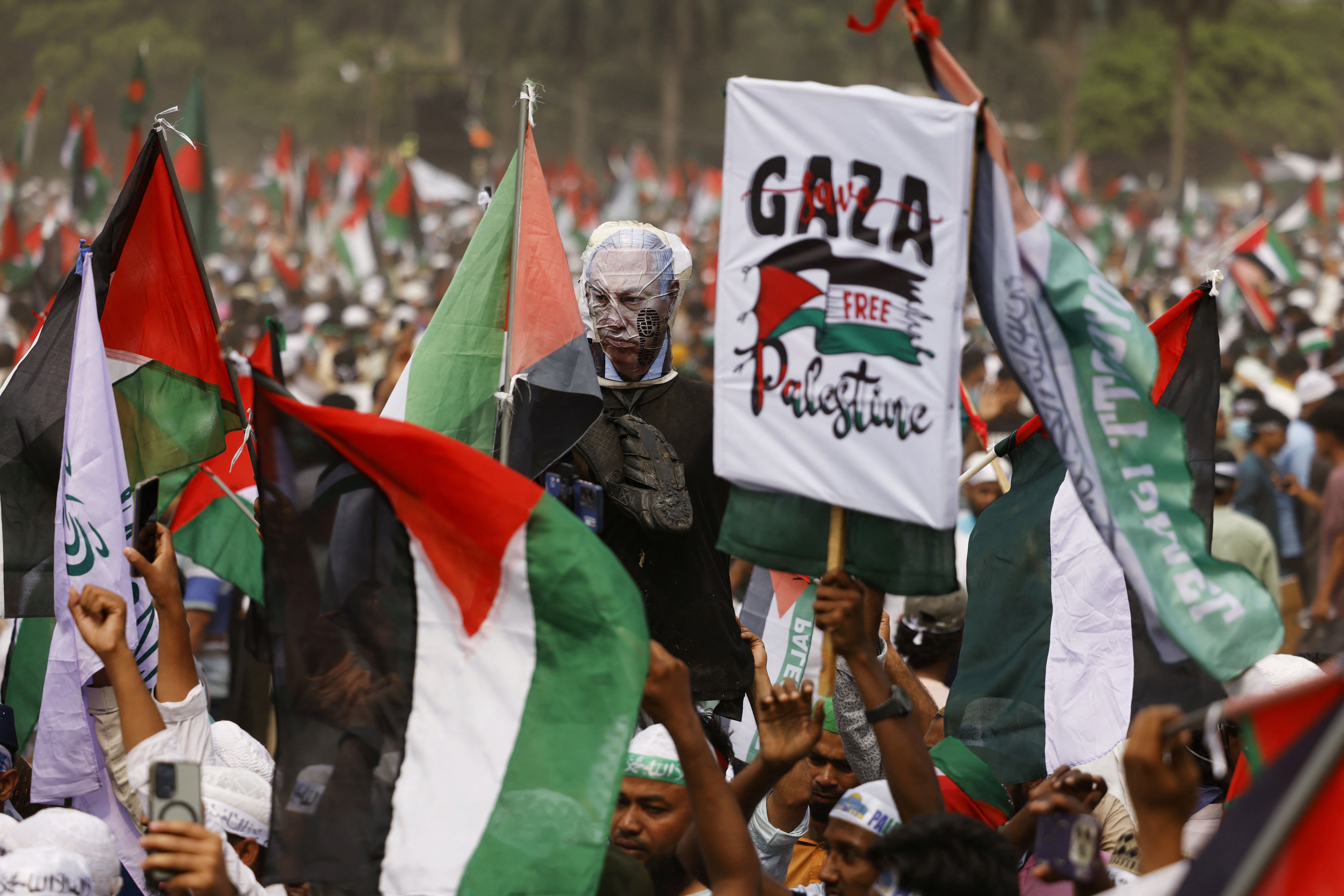On Saturday, Dhaka witnessed what was described as the largest pro-Gaza rally in Bangladesh’s history, with hundreds of thousands marching in solidarity.
A key demand of the rally’s declaration was the return of the “except Israel” clause, a demand the government has now fulfilled.
As mass pro-Palestinian protests continue to sweep the Global South –from the streets of Jakarta and Kuala Lumpur to rallies in Cape Town and Pakistan– some governments are taking this sentiment to the next level with concrete measures.
Nowadays, travel restrictions have emerged from the Global South as a powerful, symbolic tool to protest Israel’s genocide in Gaza.
On Tuesday, the Maldives became the latest country to take a firm diplomatic stance, announcing a formal ban on Israeli passport holders entering its territory.
The Maldivian government cited the decision as a “firm stance in response to the continuing atrocities and ongoing acts of genocide committed by Israel against the Palestinian people.”
That same day, the Bangladeshi new interim government reinstated the “except Israel” clause in its passports, effectively barring citizens from travelling to Israel.
The new government which took office in August following Prime Minister Sheikh Hasina’s ouster has reversed her cabinet’s decision taken in 2021.
The move to remove “except Israel” from its passports came just one day after massive pro-Palestinian demonstrations across Bangladesh.
Long-standing bans resurface
Beyond these new or renewed measures, several other countries already maintain blanket bans on Israeli passport holders or bar entry based on any evidence of travel to Israel.
Malaysia, which has long refused to recognise Israel, continues to deny entry to all Israeli citizens, a policy it has recently reaffirmed in light of Israel’s genocidal war on Gaza. The Malaysian government has also been vocal at international forums, calling for Israel to be held accountable under international law.
Pakistan likewise bars Israeli passport holders and does not recognize Israel as a state. Successive governments have maintained that formal ties will not be considered until a just resolution is reached for Palestinians, specifically, the creation of an independent Palestinian state with East Jerusalem as its capital.
This long-standing position has been reaffirmed by officials in recent months, amid growing outrage over Israel’s genocidal war on Gaza.
Lebanon, Kuwait, Iraq, and Algeria are also among the countries that impose restrictions either on Israeli citizens or on any traveller whose passport contains Israeli visas or entry/exit stamps.
Additional nations that do not recognise Israel and prohibit entry to Israeli passport holders include Brunei, Iran, Libya and Syria.

Powerful message
Though such bans have limited material impact, their symbolism carries weight. By using sovereign control over borders to impose restrictions on Israeli nationals, these governments are sending a message of defiance at a time when international bodies have failed to stop the genocide.
In effect, travel restrictions are becoming one way for Global South states to sidestep the paralysis of multilateral diplomacy and signal alignment with popular calls for accountability.
This approach also reflects deep frustration with the impunity of powerful states, particularly Western nations supplying arms to Israel while shielding it from accountability at the United Nations Security Council.
Calls are growing among Global South for further actions beyond travel, such as suspending trade agreements, halting arms cooperation, or joining South Africa’s genocide case against Israel at the International Court of Justice.



















